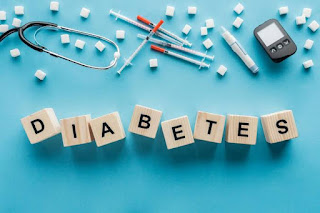Diabetes and Its Alarming Impact on Global Health: Understanding the Risks and Prevention Strategies
Diabetes and Its Alarming Impact on Global Health: Understanding the Risks and Prevention Strategies
Diabetes is a chronic metabolic disorder characterized by elevated blood sugar levels in the human body, which can lead to various complications affecting overall health. According to the International Diabetes Federation, over 463 million adults worldwide were living with diabetes in 2019, and the number is expected to rise to 700 million by 2045. Diabetes is becoming a silent killer, silently affecting the human race every day.
Image Source: GoogleHow Diabetes Affects the Human Body
When we eat food, the body breaks down the carbohydrates into glucose and releases insulin, a hormone produced by the pancreas, to help the glucose enter the cells and provide energy. In individuals with diabetes, either the body doesn’t produce enough insulin, or it doesn’t properly use the insulin to regulate blood sugar levels.
Diabetes can have possible long-term effects on various parts of the body such as;
1. Heart Disease: Individuals with diabetes are at higher risk of developing heart disorders such as heart attack, stroke, and atherosclerosis.
2. Kidney Damage: High levels of sugar in the blood can damage the delicate blood vessels in the kidney, causing protein in the urine and, over time, kidney failure.
3. Nerve Damage: Diabetes can cause nerve damage often leading to numbness, tingling, and pain in the extremities.
4. Eye damage: High sugar levels in the blood can cause damage to the blood vessels in the retina-leading to vision loss and blindness.
5. Infections: Individuals with diabetes are more prone to infections as their immune system is comparatively weaker.
Diabetes and Its Rising Incidence
Diabetes is on the rise globally due to various reasons including;
1. Sedentary lifestyle: With computers and mobile devices becoming more prevalent, people are spending more time sitting and being inactive than ever before.
2. Unhealthy dietary habits: With the proliferation of fast food joints and sugary drinks, people are consuming an increasing number of unhealthy foods and drinks leading to weight gain and subsequently affecting insulin resistance.
3. Genetic Issues: In some cases, genetic factors play a significant role in developing diabetes.
Preventive Measures
While there is no cure for diabetes, measures can be taken to prevent or manage it, including;
1. Regular Exercise: Exercise helps keep the blood sugar levels in check.
2. Healthy diet: A balanced, healthy diet is crucial for managing healthy glucose levels.
3. Medication: Insulin or oral medications can be prescribed to manage blood sugar levels.
4. Tight glucose monitoring: Regular check-ups can help prevent complications of diabetes.
Conclusion
With diabetes witnessing a significant increase worldwide, combating this chronic disease requires significant effort from both individuals and society as a whole. Governments and health professionals should prioritize diabetes management and promote awareness about managing diabetes through lifestyle changes. Individuals should aim to lead a healthy lifestyle by following a nutritious diet and incorporating regular exercise as a part of their routine. With such measures, even with diabetes, one can live a healthy and fulfilling life.
Also Read :
The Truth About Good Cholesterol and Bad Cholesterol: What You Need to Know
Healthy Living: The Importance of Preventing Diseases
Reduce Depression: 5 Strategies
The Benefits of Healthy Eating and Practical Tips for a Balanced Diet


Comments
Post a Comment